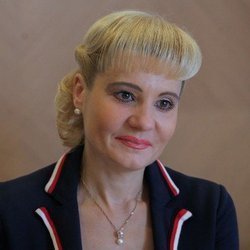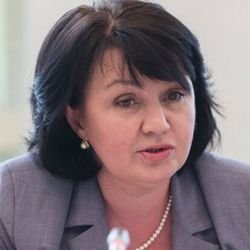‘We really need migrants for ambitious plans’
How Tatarstan is solving the problem of workforce outflow
Russia is experiencing a big deficit of workforce on construction sites — an outflow of labour migrants because of restrictive measures amid the coronavirus pandemic has its impact. During the first quarter of 2021, foreign citizens were given 36% fewer permits than a year ago. Realnoe Vremya’s correspondent found out how Tatarstan is doing without labour migrants and the possible consequences.
A sudden deficit of labour migrants
A complex situation with labour migration is unfolding in Russia. Russia’s Ministry of Internal Affairs has claimed that there were 29,3% fewer temporary residential permits given to foreigners and people without citizenship (for the first time), or 34,925, in January-April 2021. A year earlier, 49,433 such permits were granted. 28,6% fewer foreigners and stateless people filed for migration registration, their number reached 2,919,205 people. A year ago, they totalled 4,086,402.
The quantity of residence permits decreased by 8,1% (74,003) compared to the analogous period last year, 80,545.
According to the Ministry of Internal Affairs, 35,7% fewer foreigners and people without citizenships applied for permits (359,717) than a year ago (559,055) since the beginning of the year. This is the lowest number of permits in Russia.
The number of work permits formally increased by 14,7% in 2021, to 22,499. Last year’s exceedingly low base during the pandemic (19,579) explains this growth. In 2017-2019, 36,000-43,000 work permits were given during the first four months.
However, the amount of permits for highly qualified specialists doubled compared to 2020. And this has been the biggest number in the last five years, 12,958. Simply qualified specialists were given 28,8% fewer work permits, 1,615. A year ago, this number reached 2,248.
In the end, the total amount of work permits was 69,345, which is 28,9% fewer than last year’s analogous period (95,576).
A third fewer labour migrants
Evaluating the situation in Tatarstan. Vice Minister of Labour, Employment and Social Protection of the republic Klara Tazetdinova named the sectors of the economy with the biggest deficit of foreign workforce:
“It is construction, which is already traditional for our republic. Industrial enterprises need them, the services system is also having certain difficulties.”

Earlier, the Russian president’s Press Secretary Dmitry Peskov had also claimed: “The number of migrants here has decreased too much. And we really need these migrants for ambitious plans.” He explained that, first of all, he meant construction: “We should build more than we are building now. Much more should be built, but this requires a workforce. Their amount decreased because of the pandemic.” There is a lack of workforce not only in construction but also in agriculture. “This is why there is some deficit of migrants, without doubt,” Peskov concluded.
According to the Russian Federal Statistics Service, the number of foreigners working according to labour and civil contracts reduced by 65,1% in January-March in construction, to 868 citizens (2,485 people a year ago).
Russia is taking certain measures to fix the situation. The government is contemplating simplified access of labour migrants for construction to the country. Their deficit is at the moment the main problem of the construction sector, it is huge risks, disruption of the country’s economy, Russian Vice Premier Marat Khusnullin stressed.
“Those categories of the population that didn’t use to be considered are attracted”
“Today the country falls short of 1,5-2 million labour migrants in construction alone, while workers’ salaries have risen by some 50% and doubled in some places because of the deficit. In other words, it is very hard to gather people even by paying twice more. We think this is one of the key factors impeding construction from developing,” Khusnullin complained.
At the same time, the vice premier added that a rise in construction workers’ salary by half leads to 12,5% higher housing prices.

Klara Tazetdinova mentioned the advantages of the issue. For instance, the shortage of labour migrants forced enterprise to raise the attractiveness of their jobs:
“Salary in some sectors of the economy increased. Pension- and pre-pension age people, students are attracted to the labour market. Those categories of the population that didn’t use to be considered as the main workforce are attracted.”
According to her, it is a myth that labour migrants are cheap: “After a migrant arrives in Russia from a neighbouring country, for instance, he has to start working, he needs 20,000-25,000 rubles to file for a permit, sit an exam, do a check-up. He carries certain costs to start working.”
Yulia Florinskaya is less optimistic about the possible consequences: “Deadlines drag on. If there aren’t enough workers on a construction site, they move from site to site. In agriculture, this probably leads to the loss of some part of the harvest. In private households, somebody postpones some works or hires citizens of the city for a lot of money for a short period of time. Large projects find it tougher, of course.”
“The problem is solved”

Yulia Florinskaya confirms these words: “Not so many flights are closed now like it was a year ago, there are two flights a week from Uzbekistan, Tajikistan, Kyrgyzstan. This is why a small but still a rise will gradually begin. It isn’t as big as used to be (6-7 million migrants), though neither is our economic growth as big as it used to be.” However, as the expert thinks, the situation won’t dramatically improve even if the borders are open though not completely:
“Unless there are restrictions, large projects will have some losses. Some employment won’t solve anything. This problem cannot be solved massively.”
Klara Tazetdinova thinks that the prospects of the labour migration market will depend on how the situation with the spreading coronavirus infection will unfold: “It depends on countries’ favourable state of affairs. The borders are step by step opening for those countries where the situation is stabilising.”
Migration growth in Tatarstan
The growth of international migration in the republic during the first quarter of the year updated the record-high number in the last five years, however, the digits aren’t so big — we had 717 more foreign specialists since the beginning of the year. 2,349 people arrived in Tatarstan from abroad, which approximately corresponds to indicators of last year’s analogous period, 2,328 people. While 1,632 migrants (1,721 a year ago) left the republic.
Klara Tazetdinova explained the reasons for the unusual situation indicating that a lot of different decisions on labour migration were made in 2020:
“If earlier, a person was obliged to leave the country after working here for some time, and this year they may stay and remain on the territory of Russia as they did last year.”
At the same time, Yulia Florinskaya warned of a wrong interpretation of the statistics: “The Russian Federal Statistics Service talks about the growth of citizens, while the numbers of the Ministry of Internal Affairs speaks about labour migrants. Labour migrants are sometimes considered as permanent population (migration growth) when they stay in the country for more than 9 months.”